Criticising the emperor: Ancient Chinese have their ways
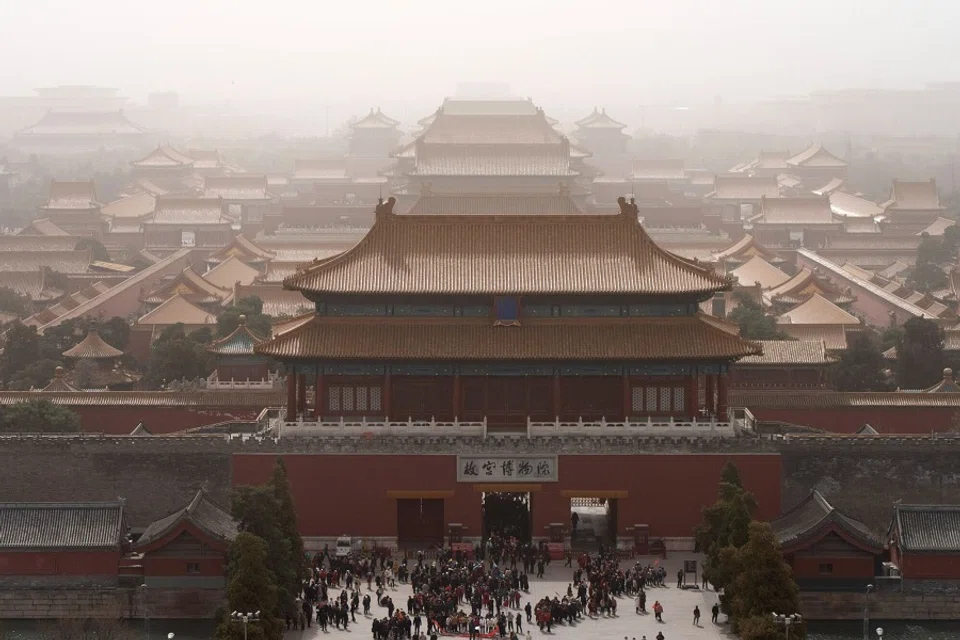
In the days of ancient Chinese imperial rule, the emperor was known as the Son of Heaven. He had the Mandate of Heaven and was the representative of heaven on earth. Thus, no matter how incorrigible he was, his subjects could not criticise him directly; otherwise, they could incur his wrath or even be given a death sentence. If they were lucky, capital punishment might be rescinded once the emperor calmed down, but there was no way that they would escape with no punishment at all.
In ancient times, it was common to mete out five punishments: Mo (墨), tattooing the face or branding the forehead; Yi (劓), cutting off the nose; Fei (剕), amputating the legs; Gong (宫), removing reproductive organs; and Dapi (大辟), giving the death sentence. It is said that these five punishments are related to the Five Elements.
The Yi Zhou Shu Yi Wen (《逸周书逸文》), a compendium of Chinese historical documents about the Western Zhou period, explains: Fire can change the colour of gold, so branding (Mo) is used to change the flesh of criminals; Metal restrains Wood, so amputation is used to cut off one's bones like axing a tree; Wood restrains Earth, so the criminal's nose is cut off like removing the roots that draw nutrients; Earth restrains Water, so reproductive organs are removed to destroy one's ability to reproduce; and Water restrains Fire, so the death sentence is used to end the criminal's life.
Such logic, while absurd, was the theoretical basis for ancient torture. These ghoulish practices are certainly unimaginable to modern man, sending a chill down the spine.
Swallowing his pride, he opted for castration in place of death and became a eunuch.
Lives in the emperor's hands
During Emperor Wu of Han's offensive against the nomadic Xiongnu, General Li Ling surrendered to the Xiongnu upon his defeat. Imperial historian Sima Qian defended Li's surrender but his words, while not a direct criticism of the emperor, offended the emperor, who then sentenced Sima to death.
To complete Records of the Grand Historian (《史記》), Sima had no choice but to choose between a death "as weighty as Mount Tai" or one "as light as a goose feather". Swallowing his pride, he opted for castration in place of death and became a eunuch. He once lamented, "There is no greater misfortune than greed; no greater sorrow than a traumatised soul; no greater immorality than insulting one's ancestors; and no greater humiliation than castration."
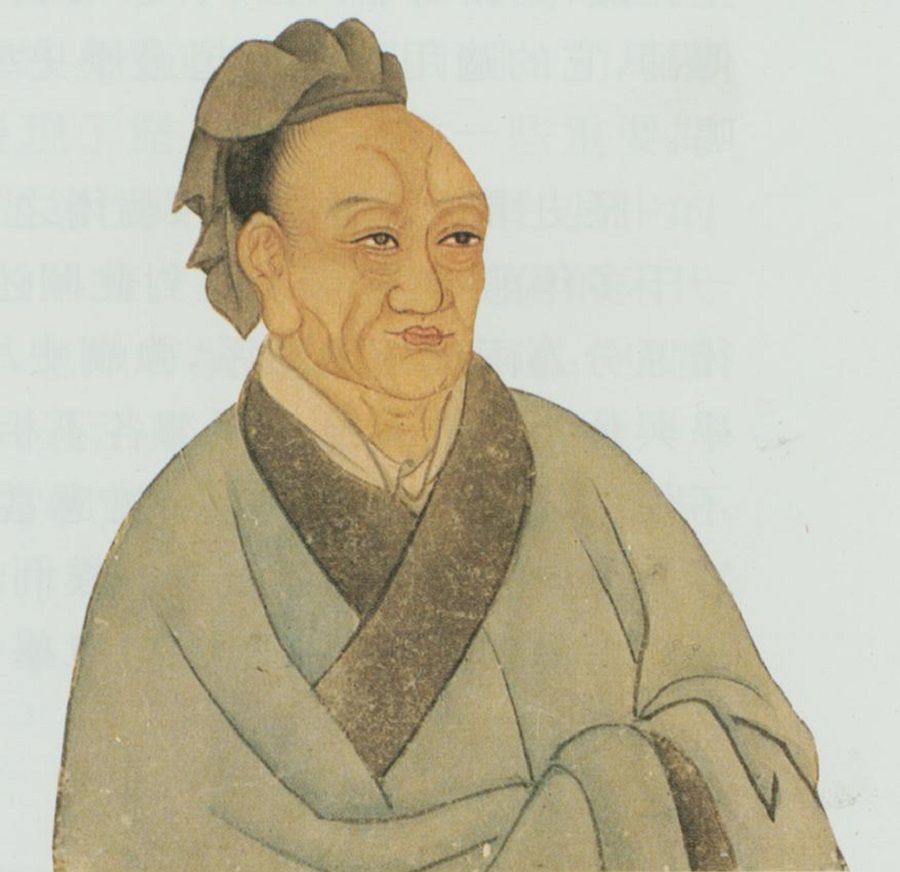
This is a heart-wrenching story in Chinese history and also a story of how emperors could abuse their power to commit cruel and tyrannical acts at any time, instilling fear and servile obedience in their officials.
Tang dynasty politician Wei Zheng warned the open-minded Emperor Taizong of Tang: "It is not the resentment of the people that is scary but the people themselves; water can carry a boat but also capsize it. This is something to be cautious about."
The "Forms of Government" (政体) chapter in Zhenguan Zhengyao (《贞观政要》), a compendium on statecraft during the Tang dynasty, says: "There is an ancient saying, 'The ruler is the boat while the common people are the water. Water can carry a boat but also capsize it.' The emperor is right to think that the people are a powerful force."
... public sentiment is like flowing water; when they can no longer withstand the pressure, they will capsize the boat - the ruler - like a tsunami.
Public opinion in the people's hands
These sayings have existed since ancient times and are a metaphor for the political idea that "the people are the foundation of a state". They serve to warn emperors that they should not rely on violent punishments to threaten people as public sentiment is like flowing water; when they can no longer withstand the pressure, they will capsize the boat - the ruler - like a tsunami.
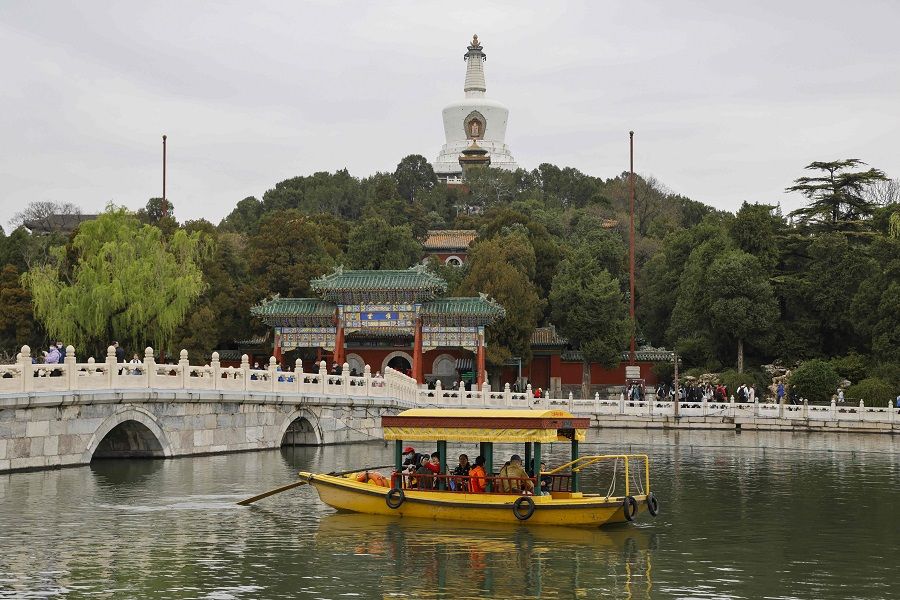
A chapter in Xunzi (《荀子》) records Confucius' response to a question from Duke Ai of Lu (哀公): "I have heard of this saying before - 'the ruler is like a boat while the common people are the water. Water can float a boat but also overturn it'. If you think of danger in this manner, how can you not feel a sense of crisis?" While these might not be the exact words of Confucius, they demonstrate a Confucian concept of human-centred virtues and can be taken as a continuation of the ancient concept of "the voice of the people is the voice of God".
That said, it is also a fact that emperors have supreme power. As soon as they ascend the throne and the Mandate of Heaven is bestowed on them, their heads start to swell and that's when they might start going crazy and run amok. They think to themselves: "If a subject is willing to offend me to get their opinions heard, I will simply sentence them to death; occasionally when I am feeling generous, I will cane them until their flesh splits open and see if they still dare wag their tongues."
Imperial officials and the literati had a lot to say about the emperor too, but they could only criticise the present by writing about the past...
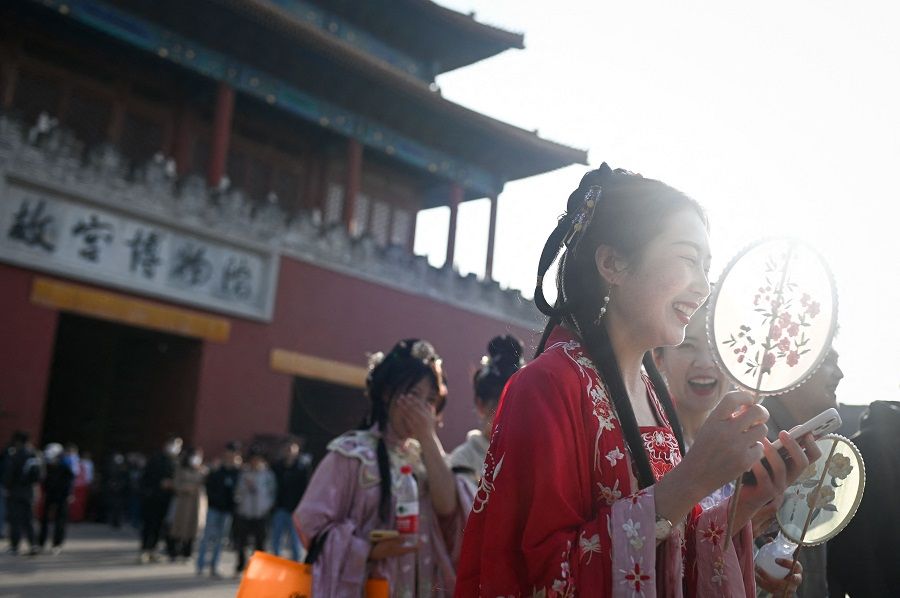
As a result, few subjects dared to voice out their suggestions or criticise current affairs for fear of being told on by the wicked, which would have unimaginable consequences. The Chinese idiom daolu yi mu (道路以目) sums up this fear - no matter how resentful or aggrieved they were, nobody dared to voice their unhappiness; they could only exchange knowing glances with people on the streets to vent their frustrations. Imperial officials and the literati had a lot to say about the emperor too, but they could only criticise the present by writing about the past (借古讽今), that is, writing poems about past emperors to vent their grievances.
The literati's veiled criticisms
During the Tang dynasty, Emperor Xuanzong of Tang dearly loved Imperial Consort Yang (杨贵妃) and was too trusting of treacherous officials such as Li Linfu and Yang Guozhong, leading to the An Lushan Rebellion which ended the golden age of the Tang dynasty. More than half a century later, Tang dynasty Chinese poet Bai Juyi indirectly expressed his displeasure with women who brought down the empire in his poem Chang Hen Ge (长恨歌, Song of Everlasting Sorrow). However, he did not assert that it was the "Tang emperor" who was fixated on beauties but said that it was the "Han emperor" instead. This is a classic example of using the past to criticise the present.
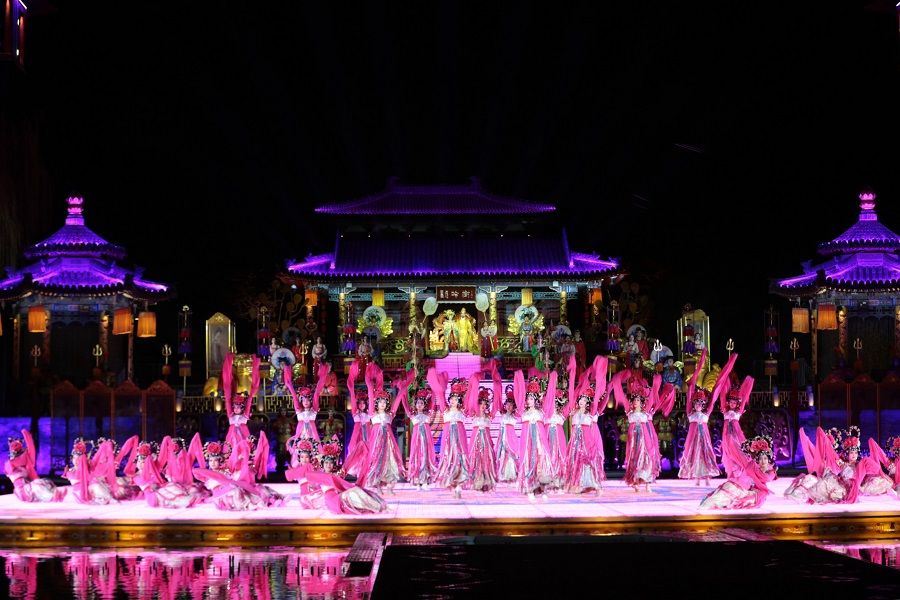
Legend has it that Emperor Xuanzong of Tang actually set up a special outpost to deliver lychees to his beloved Imperial Consort Yang on a tight timeframe just so she could enjoy them fresh.
Chinese poet Du Mu of the late Tang dynasty wrote in one of his poems (《过华清宫绝句三首·其一》): "The cascading Mount Li is in sight as one turns back and looks from Chang'an. Atop the mountain sits Huaqing Palace; a series of gates opening one after another. A horse gallops towards the palace, and a consort smiles. Only she knows that lychees from the south have arrived."
Tang Guo Shi Bu (《唐国史补》, supplementary materials to the history of the state) also recorded the lengths that the emperor would go to deliver lychees from the south to Imperial Consort Yang. While the story may not be entirely true and historians have also argued over its veracity, the poet's aim was to criticise the government and the present by writing about the past, not to clarify historical facts.
Highlighting excesses and whims
Then came the Song dynasty, when emperors highly valued tea drinking and loved dragon-phoenix ball tea (龙凤团茶), a type of tribute tea from Fujian. The production of this tribute tea was incredibly lavish and excessive: tea farmers had to pluck tea leaves during Jingzhe (惊蛰), that is, around early March in the modern calendar. This took a toll on the tea farmers and also wasted a lot of money, drawing the ire of many people.
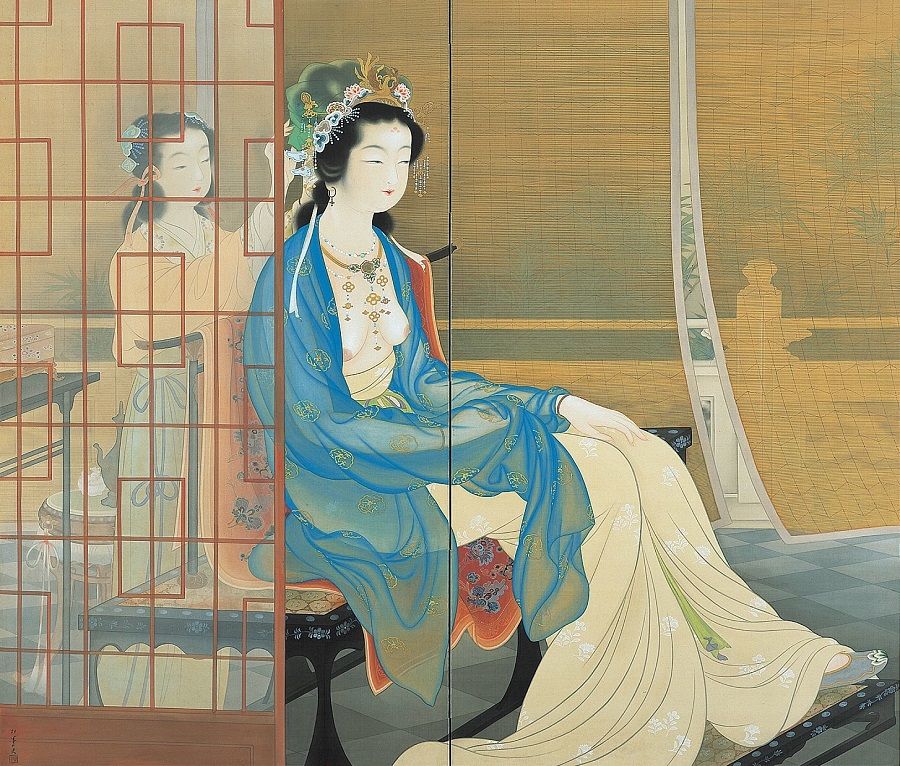
Song dynasty poet Su Shi wrote the poem Lizhi Tan (荔枝叹, lit. A Lament for Lychees), in which he criticised Fujian tribute tea by writing about the past, speaking of Tang dynasty Imperial Consort Yang's love of lychees and the backlash that it had triggered. He suggested that to satisfy the court's insatiable appetite for novelty, the lives of ordinary folks were not spared and tons of money was spent.
He wrote, "I only hope that the heavens will take pity on the common people and not create such dangerously seductive women to harm the world. I only hope that the land will have peace and the crops abundant so that people will not starve - that's the best that can happen. Did you not see Ding Wei and later Cai Xiang delivering cage loads of tea to the court, fighting to come up with the best ways to produce tea and making 'tribute tea' out of this year's top tea? Does our emperor lack these things? How vile and terrible it is to know only to satisfy the physical desires of the emperor!" Here, Ding Wei (丁谓) and Cai Xiang (蔡襄) refer to the officials in charge of supervising the production of dragon-phoenix ball tea in Fujian.
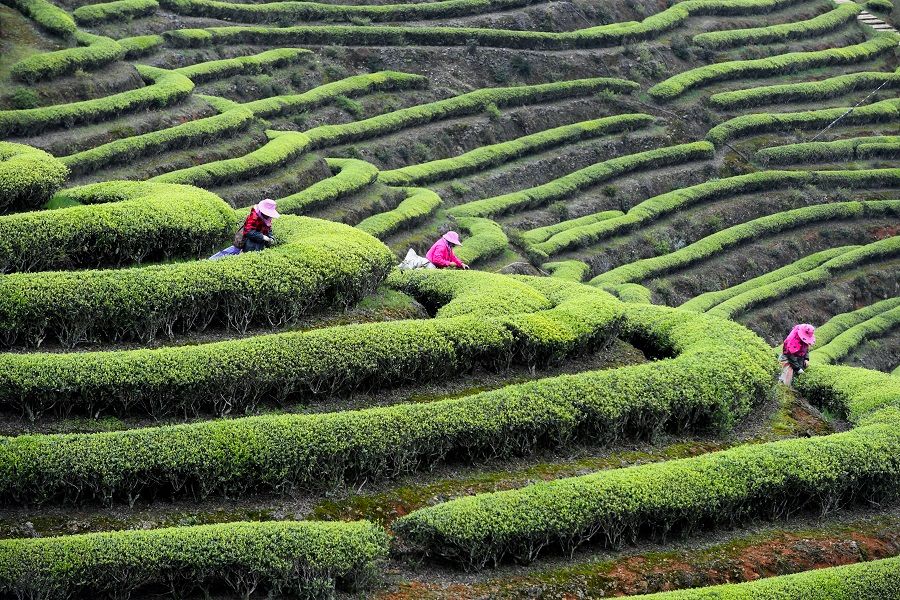
Su Shi did it best
Afraid that people would fail to understand the meaning and objective of his satirical poem, Su even added a footnote: Ding Wei started the production of dragon-phoenix ball tea while Cai Xiang further refined its production to flatter the emperor. When Ouyang Xiu heard of Cai's doings, he exclaimed, "Cai Xiang is a reputable literati, why did he do such things?"
Nobody does it better than our beloved Su Shi.
Clearly, although Su Shi was criticising the imperial court, he dared not point out that the emperor and the royal family were the ones who only cared about satisfying their own desires and couldn't care less about the people's sufferings. He instead pointed the finger at the officials to avoid offending the emperor.
The way he criticised the present by writing about the past was very interesting: he initially wanted to lament about the lychee incident but could not help talking about the present tribute tea problem instead, making a direct criticism of current affairs. Not only that, he was worried that people would not get what he was driving at, and added a helpful note to the world - P.S: Don't get me wrong, this is just a criticism of the present by writing about the past.
Nobody does it better than our beloved Su Shi.
